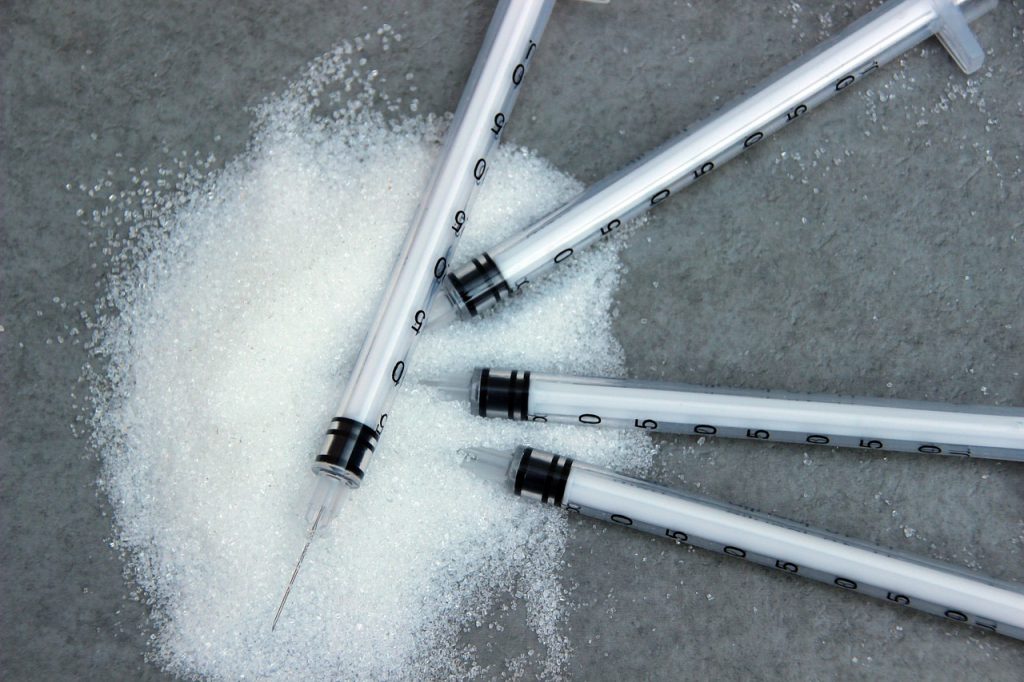What is insulin?
Insulin is a hormone that is produced within the islets of Langerhans of the pancreas, which is an organ in the gastrointestinal tract, located behind the liver. The pancreas, while not an endocrine organ, has endocrine tissue and functionality.
When carbohydrates are digested they are broken down to glucose and absorbed into the bloodstream. The pancreas detects the spike in glucose (by sampling the blood that passes through it) and secretes insulin in response, which gives the signal that the extra glucose should be taken into the skeletal muscles and other cells.
Insulin targets most cells in the body, binds to them and activates receptors to allow the cells to absorb the extra glucose that is circulating in the blood.
Important insulin facts
- Insulin is a protein
- Insulin should be between 5-20 mcU/mL if the blood test has been taken when fasting (nothing eaten prior to the blood test)
- Insulin reduces the levels of glucose in the blood
- Insulin ensures that all cells are able to absorb the glucose required for their energy needs
- Insulin resistance is a pre-diabetic condition which means that the cells become resistant to the effects of insulin and the pancreas has to output more insulin to try to get the excess glucose out of the blood stream and into the cells
- If insulin continues to not work properly, if it does not activate the cells to absorb the glucose in the bloodstream, the pancreas can become basically defunct in its activity and diabetes can be the end result
Why insulin is important
Insulin provokes a wide range of important actions:
- Increases the uptake of glucose in skeletal muscles
- Enable muscles to store glucose in the form of glycogen
- Decreases the breakdown of fat cells for energy
- Increases the uptake of amino acids and protein synthesis
- Decreases glycogen breakdown in the liver
- Decreases the rate that the liver releases glucose into the blood
Insulin resistance is a – condition which means that the cells become resistant to the effects of insulin, after which the pancreas secretes more insulin to compensate for the fact that the cells are not absorbing glucose properly.
Another effect of insulin resistance is that there are high levels of glucose in the blood. After some time of this, the pancreas becomes unable to keep up with the requirement of insulin (to remove the glucose from the blood stream and get it take into the cells) and type 2 diabetes is the result.

